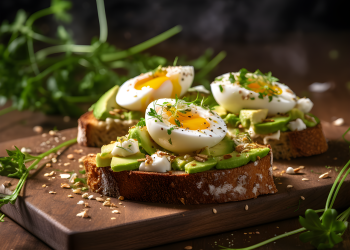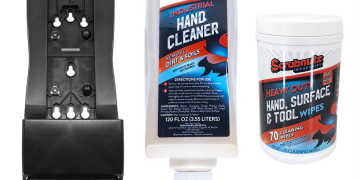The concept of eating fats to lose weight might seem counterintuitive, but healthy fats are an essential component of a balanced diet and can play a key role in achieving weight loss goals. Unlike the unhealthy fats found in processed foods, healthy fats provide essential nutrients, promote satiety, and support overall well-being. By understanding the types of healthy fats and how to incorporate them into your daily meals, you can enhance your weight loss efforts without feeling deprived.
Understanding Healthy Fats
Not all fats are created equal. To make informed dietary choices, it’s important to distinguish between healthy and unhealthy fats.
Types of Healthy Fats
- Monounsaturated Fats: Found in olive oil, avocados, and certain nuts, monounsaturated fats are heart-healthy and can help reduce bad cholesterol levels.
- Polyunsaturated Fats: These include omega-3 and omega-6 fatty acids, which are essential fats that the body cannot produce on its own. Omega-3s, found in fatty fish like salmon, flaxseeds, and walnuts, are particularly beneficial for reducing inflammation and supporting brain health.
- Natural Saturated Fats: While often demonized, natural sources of saturated fats, such as those found in coconut oil and grass-fed dairy, can be consumed in moderation as part of a healthy diet.
Fats to Avoid
- Trans Fats: Found in many processed and fried foods, trans fats are linked to an increased risk of heart disease and should be avoided entirely.
- Excessive Saturated Fats: Saturated fats from processed meats and high-fat dairy products can contribute to weight gain and other health issues if consumed in excess.
The Role of Healthy Fats in Weight Loss
Healthy fats are more than just a source of energy; they play a vital role in supporting weight loss in several ways:
- Promoting Satiety: Fats are digested more slowly than carbohydrates, helping you feel full for longer periods and reducing overall calorie intake.
- Supporting Metabolism: Omega-3 fatty acids, in particular, have been shown to enhance metabolic rates and improve fat-burning processes.
- Balancing Hormones: Healthy fats contribute to the production of hormones that regulate appetite and fat storage.
- Enhancing Nutrient Absorption: Certain vitamins, such as A, D, E, and K, are fat-soluble, meaning they require dietary fat for proper absorption.
How to Incorporate Healthy Fats into Your Diet
Adding healthy fats to your meals doesn’t have to be complicated. Here are practical and delicious ways to include them in your diet:
1. Start Your Day with Healthy Fats
Breakfast is an ideal opportunity to incorporate healthy fats. Add a slice of avocado to your whole-grain toast, drizzle olive oil over scrambled eggs, or blend a teaspoon of nut butter into your morning smoothie. These options provide a satisfying start to your day and help stabilize blood sugar levels.
2. Choose Nutritious Snacks
Swap processed snacks for nutrient-dense options that include healthy fats. A handful of almonds, walnuts, or sunflower seeds can curb hunger and provide sustained energy. Pairing them with fresh fruit or a small piece of dark chocolate makes for a satisfying treat.
3. Incorporate Fatty Fish
Fatty fish like salmon, mackerel, and sardines are rich in omega-3 fatty acids. Aim to include fish in your meals at least twice a week. Try grilling salmon with a squeeze of lemon or adding canned tuna to a salad for a quick and healthy lunch.
4. Cook with Healthy Oils
Replace butter and other saturated fats with plant-based oils like olive, avocado, or coconut oil. These oils not only add flavor to dishes but also provide a dose of healthy fats. Use olive oil for sautéing vegetables, avocado oil for roasting, and coconut oil for baking.
5. Add Nuts and Seeds to Meals
Sprinkle nuts and seeds over salads, oatmeal, or yogurt for added crunch and nutritional benefits. Chia seeds and flaxseeds are particularly rich in omega-3s and can be mixed into smoothies or baked goods.
6. Enjoy Dairy Alternatives
For those who are lactose intolerant or looking to reduce dairy consumption, plant-based alternatives like almond milk, coconut yogurt, and cashew cheese offer a source of healthy fats without added sugars or saturated fats.
7. Experiment with Avocados
Avocados are a versatile ingredient that can be used in a variety of dishes. Mash them into guacamole, spread them on sandwiches, or blend them into a creamy salad dressing. Their creamy texture and rich taste make them a satisfying addition to any meal.
8. Make Smart Dessert Choices
Desserts don’t have to be off-limits when trying to lose weight. Incorporate healthy fats by making desserts like chia seed pudding, avocado chocolate mousse, or energy bites made with nuts and dates.
Balancing Fat Intake
While healthy fats are beneficial, it’s important to consume them in appropriate amounts. Since fats are calorie-dense, portion control is key to preventing excess calorie consumption. For example:
- A serving of nuts is about a small handful (1 ounce).
- A serving of avocado is about one-third of a medium avocado.
- A serving of olive oil is about 1 tablespoon.
Tracking your fat intake using a food diary or app can help you stay within your daily calorie goals while reaping the benefits of healthy fats.
Tips for Success
Plan Ahead
Incorporating healthy fats into your diet becomes easier with a bit of planning. Stock your kitchen with staples like olive oil, nuts, seeds, and avocados so they’re readily available for meals and snacks.
Avoid Low-Fat Products
Many low-fat or fat-free products compensate for the lack of fat by adding sugars or artificial ingredients. Opt for full-fat versions of foods like yogurt or milk, as they are more satisfying and less processed.
Pair Fats with Other Nutrients
Combining healthy fats with proteins and fiber-rich carbohydrates creates balanced meals that provide lasting energy and satiety. For example, pair avocado with whole-grain toast and a poached egg, or enjoy a salad with olive oil dressing and grilled chicken.
The Bottom Line
Healthy fats are a vital part of any weight loss plan, offering both nutritional benefits and satisfaction. By incorporating these fats into your meals and snacks, you can create a diet that is both enjoyable and effective for achieving your health goals. With mindful choices and balanced portions, healthy fats can become an essential tool in your journey to better health and sustainable weight loss.










